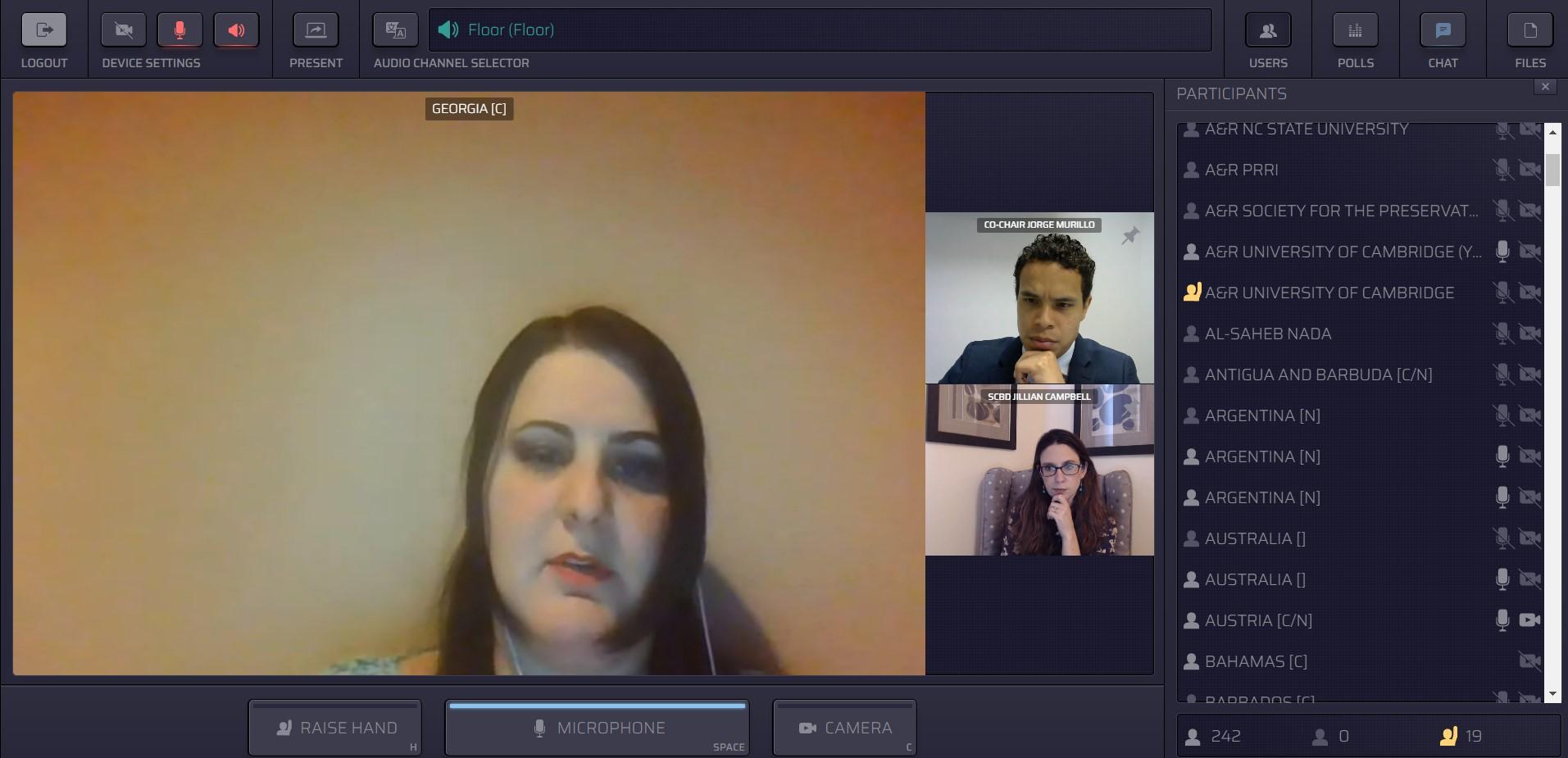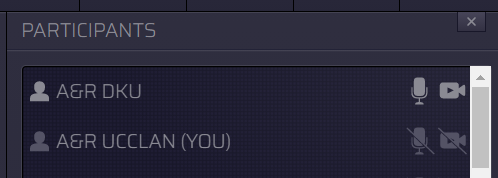
UCCLAN Delegation to the CBD
The UCCLAN has been participating in the CBD discussion of the Subsidiary Body On Scientific, Technical And Technological Advice (SBSTTA) at its 24th meeting and Subsidiary Body on Implementation (SBI) at its 3rd meeting, back to back. These virtual meetings will be providing the draft text to be negotiated at CBD COP in Kunming planned for October of this year. Next up in the CBD process will be the 3rd Open Ended Working Group meeting to negotiate the Global Biodiversity Framework with its targets and goals which is still planned face-to-face in Cali, Colombia in the summer, however covid19 situation will determine how this will roll out.
The meetings present an interesting and diverse areas of discussions from resource mobilization, invasive species and general processes. They are often taking several hours both due to the length of the documents or disagreements on specific words or paragraph text by parties.
UCCLAN made a few interventions and presented several statements to the floor, as well as provided input to major headline indicators for goals and targets of the draft Global Biodiversity Framework. The full schedule of the sessions is found here and meetings and contributions will continue until the 13th of June - Convention on Biological Diversity (cbd.int),
there is still an opportunity to engage or just follow the process for alumni who are interested. The meetings include Plenary Sessions which are open and available for viewing at YouTube Channel and Contact Group sessions which are closed meetings for registered groups of delegates discussing intricate details of texts that will make up the convention.
So will the new CBD Global Biodiversity Framework be indeed transformational?
Here are a few hot issues that might present a challenge in the near future:
1. Indicator and monitoring framework process - parties to the convention do not wish to repeat mistakes of the Aichi targets, and want to approve a list of indicators along with targets and goals so it will not take years to deliberate on indicators. However there is a draft decision of potential headline indicators that are now decided upon, before we know what the final targets and goals are. This means that indicators and monitoring framework will need to be renegotiated in the next COP, 2 years after Kunming following an expert group that will be set up to review the current indicator framework. However, the risk is starting with inappropriate indicators for the yet non agreed targets because Parties might prefer consistency over accuracy.
2. Virtual meeting limitation - . In these virtual sessions of SBSATTA and SBI, some Chairs have given observers very little, if any, time, to a point that even parties (governments) complained. As the meetings progressed it has become more organized. However since observers cannot insert a suggestion in the text without support of a party. Therefore there is a big issue with the ability for observers to participate effectively without the ability to have informal encounters with parties, as well as time to explain interventions due to the virtual nature of meetings being held currently.
3. Voluntary commitment mechanism introduced - in the footsteps of the UNFCCC Nationally Determined Contributions , secretariat of the CBD has raised a proposal which many dislike for voluntary commitments. The worry of some parties and NGOs is that these voluntary commitments will divert focus from the obligatory NBSAPs. EU and others claim NBSAPs are a long process and we need something quicker to raise ambition for the first year. Discussion on this is about to happen in the coming days and months until COP, but there is currently no clear process on how these diverse views will be reconciled until then. In the meantime, all disagreements are left as bracketed text.
The main UCCLAN delegation members Rosalind Helfand, Noa Steiner, Aylin Mcnamara, and Alastair Jones, Iris Dicke, Becca Boslough and with a much appreciated support of a number of current Mphil cohort members - Alerick Packay, Riehnard Nyandire and Mariana Martinez del Rio. UCCLAN also has a WhatsApp group consisting of over 20 interested alumni that are actively contributing to statements and interventions during meeting sessions or join periodic Zoom calls to discuss next steps in their areas of interest and expertise.
The UCCLAN delegation is also in touch with alumni who are participating in the meetings in their professional capacities - Teona Karchava - delegate of Georgia and contact group Co-Chair for Resource Mobilization, Lisama Sabry - delegate of the Maldives, and Monipher Musasa - a delegate of IFAW.
There are, as always, still opportunities for you to join and your knowledge, skills, experience and expertise would be highly appreciated
Or contact Aylin, the head of the UCCLAN delegation to be added directly - aylinmcnamara@yahoo.com.
With our best wishes,
Noa, Aylin, Ros and Al.

